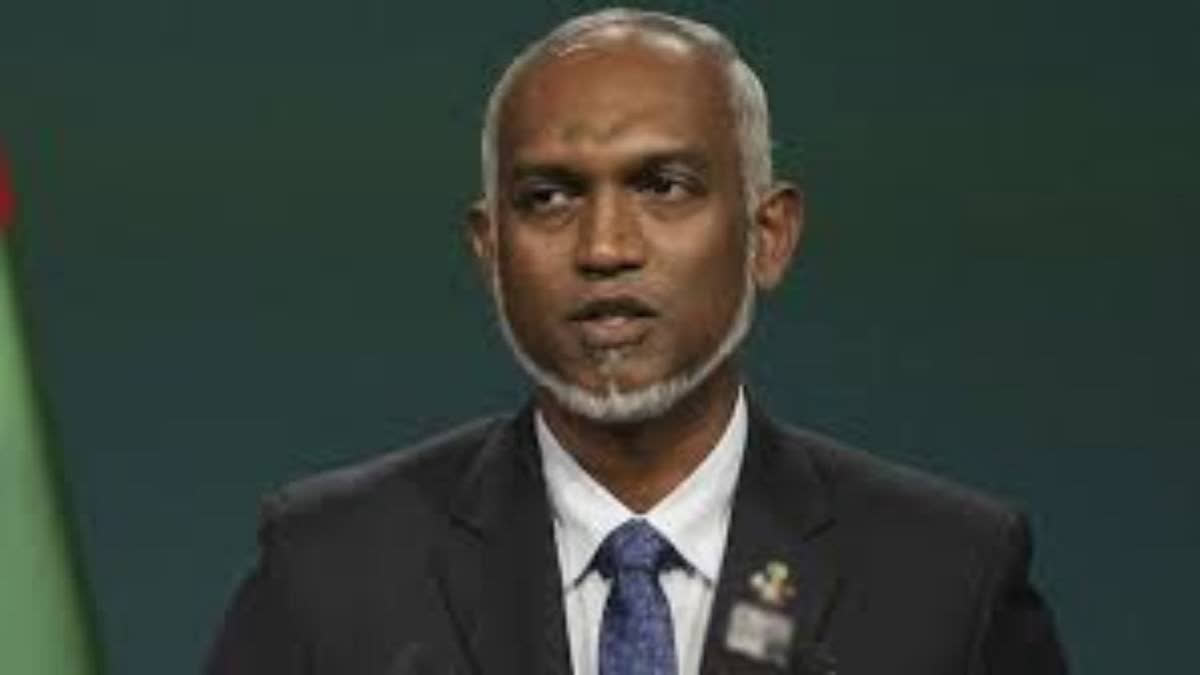New Delhi: In what can be viewed as a sudden turnaround from his pronounced foreign policy steps against India, Maldives President Mohamed Muizzu has said that India will continue to be the closest ally of his country and expressed the hope that New Delhi will provide debt repayment relief to the Indian Ocean archipelago nation.
In his first-ever exclusive interview with a news outlet after assuming office as President in November last year, Muizzu also claimed that he had never taken any action or made any statement that would affect ties between the Maldives and India. “It is not nice to dismiss or disregard aid from one country to another as useless,” the Edition.mv news website quoted Muizzu as telling Dhivehi news outlet Mihaaru.
He also expressed the hope that India will accommodate debt relief measures in the repayment of the hefty loans that his country’s consecutive governments have taken over the years. “The conditions we have inherited are such that there are very large loans taken from India,” Muizzu said. “Hence, we are holding discussions to explore leniencies in the repayment structure of these loans. Instead of halting any ongoing projects, proceed with them at speed. So, I see no reason for any adverse effects (on Maldives-India relations).”
The Maldivian government under former President Ibrahim Mohamed Solih had taken loans amounting to $1.4 million (MVR22 million). Together with this, the amount owed by the Maldives to India by the end of last year stood at MVR6.2 billion (around $401 million), according to Edition.mv.
Muizzu said that he is discussing with the Indian government to explore options to repay the loans to the best of the Maldives’ economic capabilities. He expressed his hope that India would facilitate debt relief measures in the repayment of these loans. “President Dr Mohamed Muizzu stated that India will continue to remain the Maldives’ closest ally and emphasised that there was no question about it,” the report stated.
So, why is Muizzu making this sudden turnaround in terms of ties between the Maldives and India? After all, he had won last year’s presidential election on a pronounced anti-India plank. He ran an ‘India Out’ campaign in which he called for the withdrawal of some Indian military personnel present in his country. These personnel, numbering less than 100, are primarily involved in humanitarian assistance and disaster relief work in the Indian Ocean archipelago nation. However, after assuming office, Muizzu made a formal request to India to withdraw these personnel. It has now been agreed that these military personnel will be replaced by civilian Indian personnel by May 10. The first batch of these personnel deployed across three platforms was replaced earlier this month.
In his interview with Mihaaru, Muizzu stated that, in seeking the replacement of the Indian security personnel, his aim was to encourage the Maldives to become self-sufficient. He further explained that this was why his government had introduced air ambulances, purchased military drones to protect the country’s territorial waters and planned to procure more ships for the Coast Guard.
“One has to view this (Muizzu’s comments about ties with India) a bit cautiously,” Harsh V Pant, Professor of International Relations with King's India Institute at King’s College London and Vice-President (Studies and Foreign Policy) at the Observer Research Foundation think tank, told ETV Bharat. “Muizzu has a history of antagonising India. He took it, too, far in showing his tilt towards China.”
Among the series of anti-India foreign policy steps that Muizzu took since assuming office, the Maldives, in December last year, decided not to renew a hydrography agreement with India citing national security concerns and the safeguarding of sensitive information. The hydrographic survey agreement was signed in 2019 during Prime Minister Narendra Modi’s visit to the Maldives. Under the agreement, India was allowed to conduct a comprehensive study of the island nation’s territorial waters, which includes reefs, lagoons, coastlines, ocean currents and tide levels.
And then again, the Maldives decided to allow a Chinese vessel to enter its territorial waters ostensibly to do research work. This decision came despite pressure from the Indian government and concerns raised by various quarters about the vessel being a “spy vessel”. India has strongly been protesting the repeated visits by Chinese vessels to the waters of the south Indian Ocean, a region New Delhi considers to be under its sphere of influence.
Then, in early January this year, a political row broke out between India and the Maldives after Prime Minister Modi visited the union territory of Lakshadweep in the Arabian Sea and promoted it on social media as an exciting tourism destination. Though Modi did not mention any other country in his comments, some Maldivian politicians took it as the Lakshadweep islands being showcased as a rival to the tourism industry in the Indian Ocean archipelago nation. They made disparaging remarks against the Prime Minister and racist comments against Indians in general.
This sparked a social media backlash from Indians, including entertainment world celebrities and sports stars. Many opposition leaders and tourism industry bodies in the Maldives also criticised the Muizzu government for this. Following this, three junior ministers in the Maldives government were suspended.
